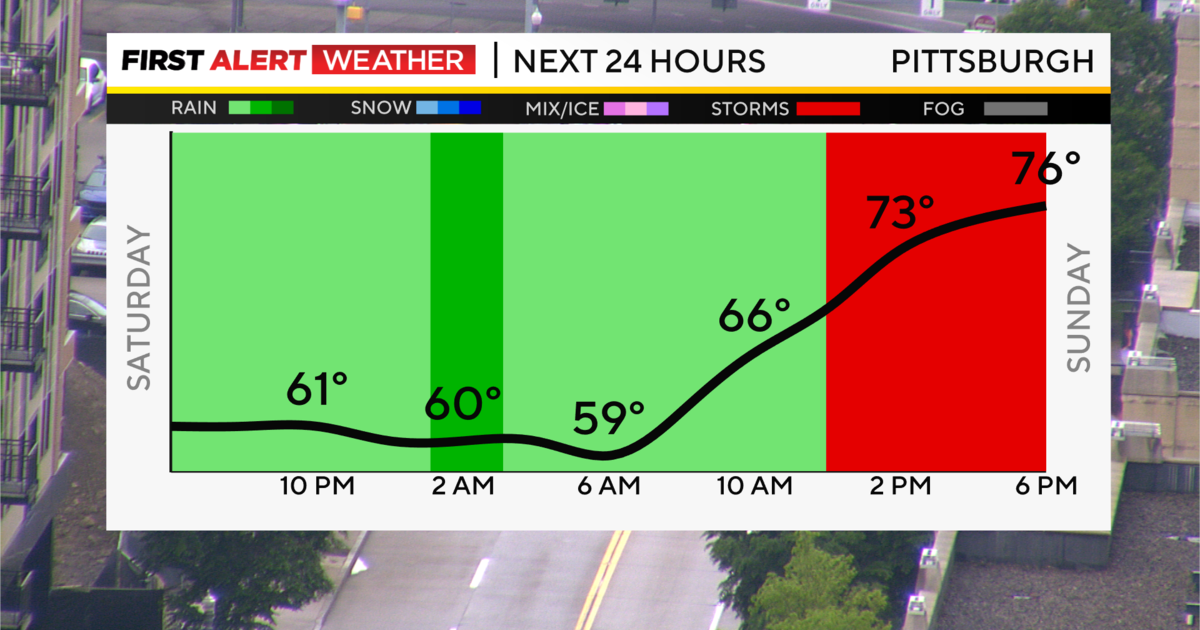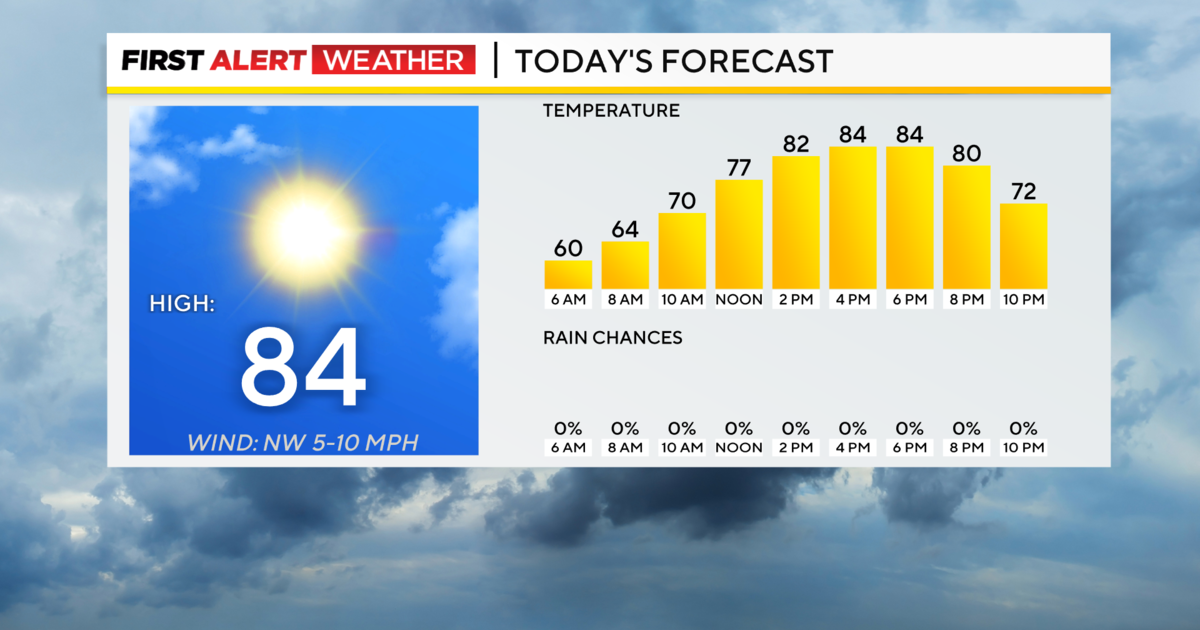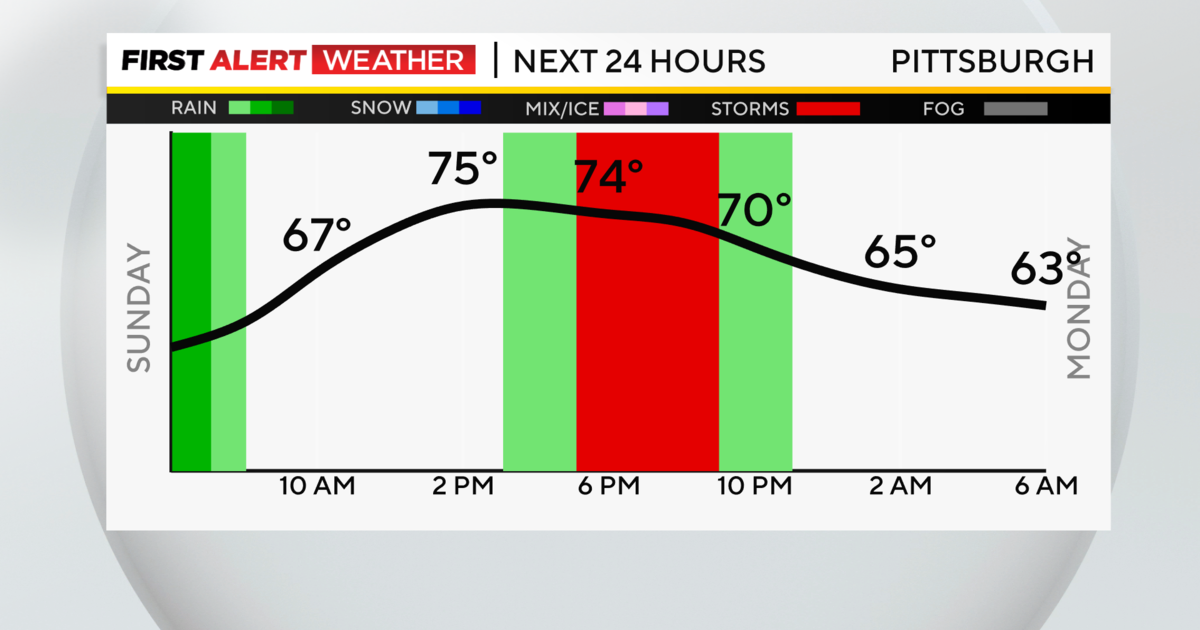What's up with this weather? KDKA First Alert Weather Team explains what we're seeing
PITTSBURGH (KDKA) - Record heat, Canadian smoke, and devastating floods...does it seem like something's gone wacky with the weather?
There does seem to be an overload of the extremes, so I wanted to know what is going on so I turned to our meteorologists.
There's a lot going on now but predicting if it's an anomaly or here to stay is the unknown.
It's a little hard to ignore the sweltering, the gushing, or the smoke-filled skies.
"The short-term answer is we are under the influence of a likely strengthening El Nino," explained KDKA First Alert Meteorologist Ray Petelin.
And more intense and more frequent El Ninos.
"The overwhelming evidence at this point shows that we are living in a world that is warming and the big cause of that is of things that we as men or man, have done" added Ron Smiley.
"We're seeing more human activity which could contribute to things like burning fossil fuels and greenhouse gas emissions," said Mary Ours.
The KDKA First Alert Team said the science is clear but the future is foggy.
"Overall, it's a sign of the warming climate, and it's real hard to look at one year and say, 'that's the case,'" Ray said.
"You have to look at it more over a period of 30 years, whenever you think of the climate," Mary added.
As Ron points out, it's hard to ignore the evidence we see now.
"When you see tornadoes everyone has, they can take out a phone and they can video it," Ron said. "So, we have more access to what's going on outside."
That includes the impact of the extreme heat across the southwest and the south.
"When the Earth is warming, you get more moisture in the atmosphere and then you can have your precipitation and that's going to lead to more destructive events," Mary explained.
Like the flooding in the eastern regions or the lightning from storms setting off Canadian wildfires.
"We've also seen, just kind of here locally, our weather pattern setting up where we have been able to be impacted by what's happening in Canada," Ron said.
However, our meteorologists pointed out, compared to the rest of the country, our weather hasn't been so bad.
Take a look at what's happening around the country - the south is broiling, the north is smoky, and when it rains, some are reaching for ark instructions.
Now, while we said it hasn't been so bad here, we still have had to deal with the smoky skies...thanks, Canada.
"Canadian wildfires happen every year, [but] it doesn't always mean that impacts us for more than a maybe a day or two," Ron said.
The El Nino, however, has set up a more frequent smoky path our way, but we aren't getting the southern heat.
"So for us, in our small little area this summer, has not been a real scorcher in respect to temperature," Ray added. "We haven't had tons of rain."
"We're actually pretty average," Mary said. "Temperatures were staying in the low-to-mid-80s, but the biggest thing is the humidity."
While we've seen flooding around the country, in our area, drought conditions have been well-documented.
"It has not been a bad summer in respect to bad weather," Ray said. "There are signs all over that say things are not right."
Pittsburgh is not immune from the ongoing change.
"We're starting to see what we have done in the past impacting what's happening right now," Ron added.
"Usually it takes hundreds or thousands of years for these climate shifts to happen, we're seeing it happen at a much faster rate," Ray said.
"It's never too late for us to help and change the way we do things to maybe help the environment because we sort of went probably a billion years left on this planet," Mary concluded.
Mary points out all of us doing the little things - recycling, getting away from plastics, etc...can all help.
Ray added that ozone has a daily, direct impact on all of us so not filling up your tank on a hot day or waiting to cut the grass can also make a difference.
While there's a feeling of futility, "I'm just one person, why bother?" Collectively, it does make a difference. While it won't help in the immediate, it will help those in generations to come.




